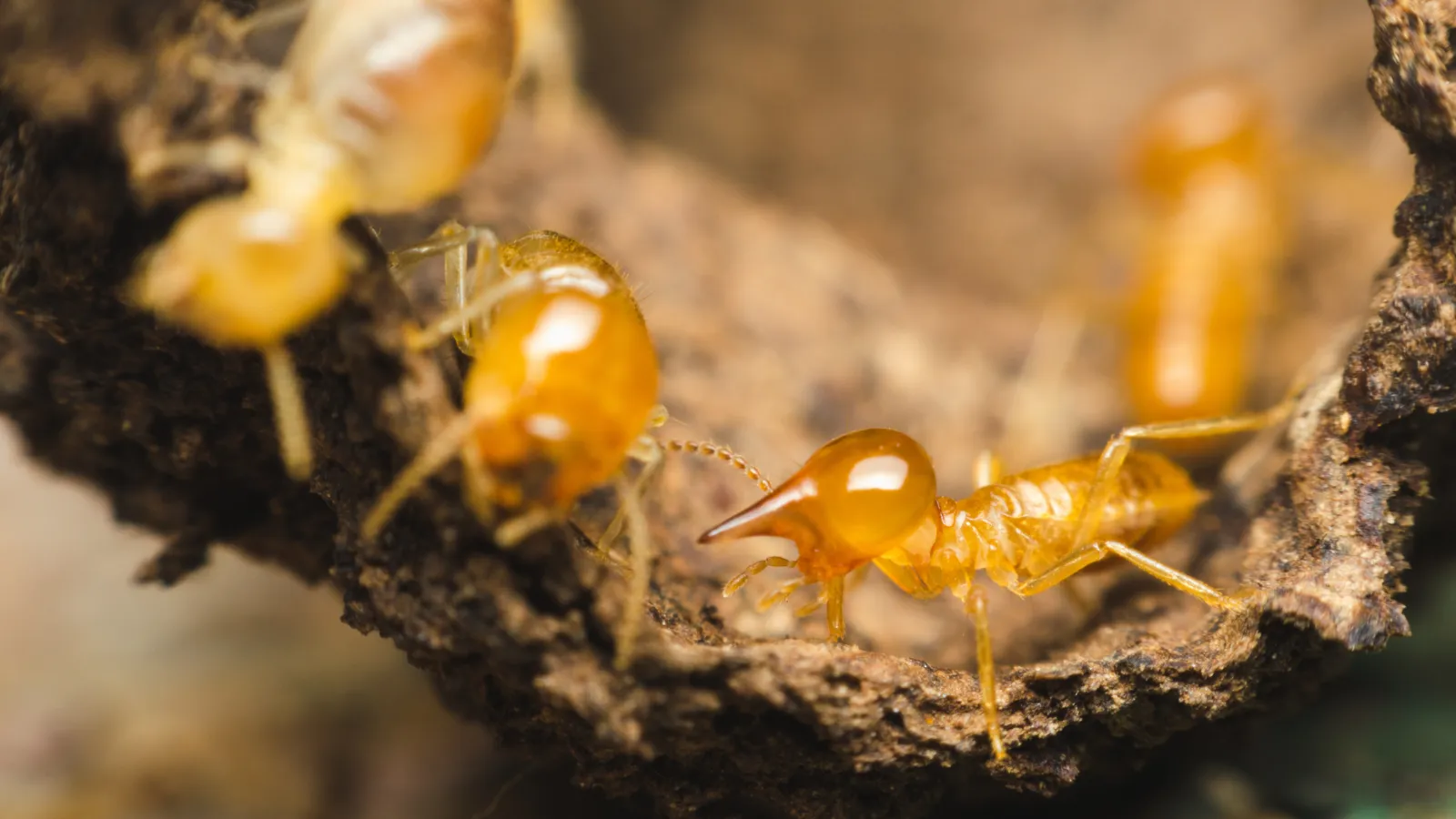Comprehensive Termite Control: Secure Your Residential Or Commercial Property with Professional Services
Comprehensive Termite Control: Secure Your Residential Or Commercial Property with Professional Services
Blog Article
Environmental Influence of Insect Control: Balancing Performance With Sustainability
The environmental influence of bug control is a crucial problem that requires a fragile balance in between accomplishing effectiveness in handling pests and ensuring sustainability of our ecosystems. From the use of dangerous chemicals that leak into our dirt and water to the unintended effects on non-target varieties, the consequences of conventional insect control methods are far-ranging.
Harmful Chemicals in Bug Control
The usage of damaging chemicals in pest control poses substantial ecological and health and wellness dangers that require cautious consideration and mitigation techniques. Herbicides, chemicals, and pesticides are frequently utilized to get rid of parasites, but their widespread application can lead to unintended effects. These chemicals can infect soil, water sources, and the air, affecting not just the targeted pests yet also useful insects, wild animals, and humans.

To resolve these dangers, integrated insect management (IPM) methods are being advertised as a more sustainable choice. IPM involves a mix of techniques such as organic control, habitat manipulation, and the targeted use pesticides as a last option (ant control kingsmountain nc). By taking on an all natural approach to pest control, we can reduce the environmental and health effects related to damaging chemicals while efficiently handling pest populations
Influence On Non-Target Species
Taking into consideration the unintended repercussions of pest control approaches, the influence on non-target species is an important element that requires thorough assessment. While bug control procedures aim to target certain parasites, other organisms in the community might be unintentionally influenced. Non-target species, consisting of valuable insects, birds, mammals, and also plants, can suffer indirect or direct harm from pesticide applications or biological control techniques.
Insecticides created to deal with a specific bug pest may hurt pollinators like bees or natural killers such as ladybugs. Organic control representatives, if not species-specific, can posture dangers to unexpected targets, interrupting the ecological equilibrium.
To mitigate the effect on non-target species, integrated pest monitoring (IPM) techniques that emphasize an all natural method to pest control are suggested. These techniques prioritize making use of eco-friendly practices, reducing harm to beneficial organisms while properly taking care of pest populations. Carrying out comprehensive risk evaluations and keeping an eye on the end results of pest control initiatives are necessary steps in protecting non-target types and promoting total community health and wellness.
Soil and Water Contamination
Unintended ecological effects of bug control methods prolong past impacting non-target types, with considerable implications for dirt and water contamination - termite control. Pesticides, herbicides, and chemical fertilizers made use of in bug control can leach right into the dirt and pollute groundwater, posing a danger to both terrestrial and aquatic environments.
Water contamination is another important problem connected with insect control methods. To minimize dirt and water contamination from bug control tasks, incorporated pest administration approaches that focus on sustainability and reduce chemical inputs are important.
Air Air Pollution From Chemical Usage
Exposure to airborne chemicals throughout Full Report farming applications postures a considerable issue for air contamination control steps. They can volatilize right into the air and form unstable natural substances (VOCs) and other air-borne contaminants when pesticides are splashed onto plants - ant control. These chemicals can add to the development of ground-level ozone, a major element of smog that can have harmful impacts on human health and wellness, plant productivity, and total air high quality. Additionally, chemical drift, where pesticides are brought by the wind to unintended locations, can cause the contamination of close-by environments and water bodies.

Strategies for Sustainable Bug Control
In the world of agricultural methods, applying sustainable parasite control techniques is critical for keeping eco-friendly balance and safeguarding crop yields. Sustainable bug control emphasizes making use of eco-friendly methods to take care of pest populations effectively while lessening damage to non-target organisms and environments. Integrated Insect Management (IPM) is a commonly adopted approach that incorporates biological, social, physical, and chemical control methods to accomplish long-lasting bug management solutions.
One trick strategy in sustainable bug control is promoting biodiversity within agroecosystems. By enhancing all-natural enemies of parasites, such as predators and parasitoids, farmers can reduce the requirement for synthetic pesticides. Crop turning and diversification are also efficient methods to interfere with pest life cycles and develop much less favorable problems for parasites to prosper. Furthermore, utilizing pest-resistant plant ranges and employing strategies like trap chopping can help reduce pest pressure without depending greatly on chemical treatments. Ultimately, by integrating these sustainable pest control strategies, farmers can achieve a balance in between pest management effectiveness and environmental stewardship.
Conclusion
In conclusion, the environmental impact of bug control approaches need to be carefully considered to stabilize performance with sustainability. Harmful chemicals used in pest control can bring about soil and water contamination, air pollution, and damage non-target types - termite control. It is critical to apply lasting bug control methods to reduce these unfavorable results on the environment and advertise a much healthier ecosystem for future generations
By embracing an alternative technique to pest control, we can reduce the environmental and health and wellness impacts connected with dangerous chemicals while properly managing pest populations.

To minimize the air contamination caused by chemical usage, it is vital to embrace incorporated insect monitoring techniques that focus on the usage of non-chemical bug control methods, such as crop turning, natural predators, and resistant plant ranges. Sustainable bug control stresses the use of eco pleasant approaches to manage insect populations successfully while minimizing harm to non-target microorganisms and ecosystems. Integrated Pest Administration (IPM) is a widely embraced method that combines organic, social, physical, and chemical control approaches to accomplish long-lasting pest administration options.
Report this page